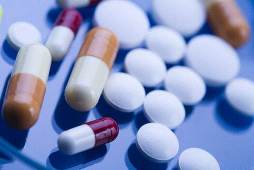 All generic pharmaceutical companies, including Ranbaxy Laboratories, Cipla, Dr Reddy's Laboratories, Lupin, Glenmark and Torrent Pharma, might soon have to pay a fee to the US drug regulator when they seek its permission to sell their products there.
All generic pharmaceutical companies, including Ranbaxy Laboratories, Cipla, Dr Reddy's Laboratories, Lupin, Glenmark and Torrent Pharma, might soon have to pay a fee to the US drug regulator when they seek its permission to sell their products there.
America is the world's largest drug market. A Generic Drug User Fee Act is on the way, to enable the US Food and Drugs Administration to levy a user fee of around $100,000 on each generic drug application filed for approval, it is learnt.
The new norms are likely to be introduced from October.
The regulator might also impose a fee for re-inspection of FDA-approved facilities abroad and on Drug Master Files that are generally filed by pharmaceutical companies with detailed information about facilities, products and processes, according to an industry representative.
Currently, the FDA does not charge any fee for generic drug applications, also known as Abbreviated New Drug Applications.
However, under the present law or the Prescription Drug User Fee Act, the regulator collects a fee from companies for any newly innovated medicine.
While the move is expected to have a financial impact on generic drug makers, analysts suggest it would also benefit companies, with faster approvals.
"Our preliminary calculations suggest the levy is likely to cause a fairly nominal financial impact (less than $100,000 per ANDA filing) for generics filers.
"However, generics players will benefit greatly by significantly accelerated review of filings in the medium term," analysts from IDFC Securities said.
The proposed generic user fee is expected
Currently, it takes the regulator an average of 30 months to review an application; it aims to reduce the review time to 10 months by 2017, a source said.
According to estimates of IDFC Securities, once the proposed law goes through, it could earn the FDA an additional $299 million per annum from generic makers.
Of this, 30 per cent is likely to come from processing of ANDAs and DMFs, and the rest from its inspection of various facilities.
However, some other sources said the user fee for generic drug applications might vary, depending on the product's market size.
Once in place, the new law is also likely to increase the frequency of re-inspections and audits of facilities abroad by the FDA.
India has, outside the US, the largest number of FDA-approved manufacturing units.
The development is also significant as a large number of Indian companies are targeting various generic launches in the US, in the wake of expiring patents.
The US generic market, 70-75 per cent of the total US pharmaceutical market, is currently estimated to be at $350 billion and seen to grow at three to five per cent yearly. Sales by Indian companies make up around 10 per cent of the US market.
About 1,000 generic applications are filed in the US market every year by Indian drug companies.
In 2011, the ANDA fillings in the US went up to 946, against 793 in 2006.
This led to a sharp increase in the backlog of processing ANDAs.
Analyst estimates show 2,696 generic drug applications were pending with the FDA as of December 2011, as compared to 1,216 in December 2006.











